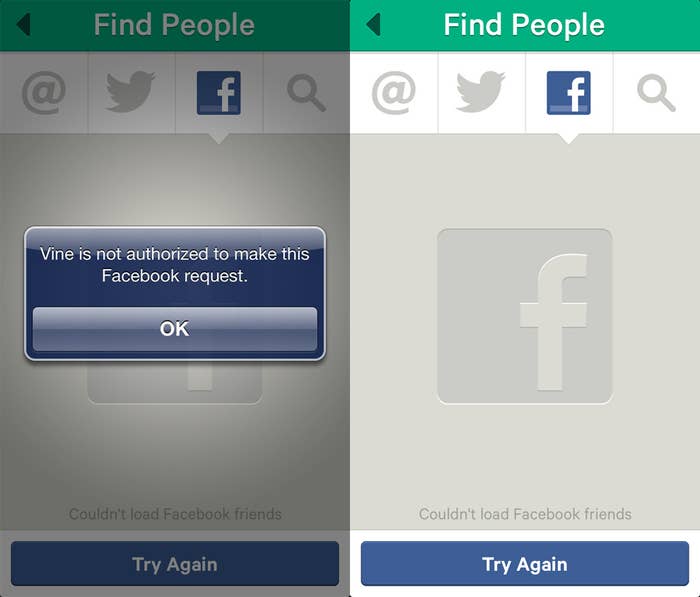
Yesterday Twitter launched a new thing called Vine — it creates short videos that you could consider either advanced animated GIFs, or like the video-equivalent of a tweet (or both!). Despite being owned by Twitter (and I will bet you dollars its video features gets integrated into the Twitter app proper), Vine is for now a standalone, separate app and social network. It has its own feed and friend list and the whole bit, like any other new social network. And like any other new social network, it wants you to find your friends on your other social networks, like Twitter and Facebook, so it can get bigger. Except that Facebook has blocked it.
This isn't at all surprising. Facebook is not about to help a Twitter-owned imaging app get bigger, particularly one that has the potential to do for mobile video what Instagram did for mobile photos. Just take a quick tour through history: Facebook blocked Twitter from accessing your friends list way back in 2010; Twitter turned around and blocked Instagram from accessing your Twitter friends in July, after Facebook bought it (also Tumblr, Google, and LinkedIn); and Instagram just blocked its photos from showing up in Twitter.
The reason everybody keeps blocking everybody else isn't simply a matter of minimizing the growth of competing services in any way possible. It's because all of that data about who and what you follow is incredibly valuable — invaluable, really, since it's the core of their business model: Use that data to deliver highly effective advertising. Facebook's social graph is its secret sauce; Twitter's interest graph is its magic fairy dust. Both are largely based on who you follow and who's following you. So they don't want to give the other guy a peek.
Like I said when Twitter cut off Instagram: "It's obvious that social services would work better together, at least for users. But their inability to share — ironic, huh — with each other means we're all alone on that front. It may be that no man is an island. But every man's social network will be."
And my Vine is a very tiny island right now. Which is more problematic than it might seem, despite the fact that Vine is owned by Twitter, a social network with 200 million or so monthly active users. Twitter's strategy with Vine is not unlike Facebook's with Instagram — keep it as a separate service, yet deeply integrate it with the main service — except Vine won't have the benefit that Instagram initially did of being able to latch onto every other big social network to propel its early growth, limiting its ability to reach critical mass in the same way.
Twitter has something special with Vine, so I hope it doesn't die on the...well, whatever.
